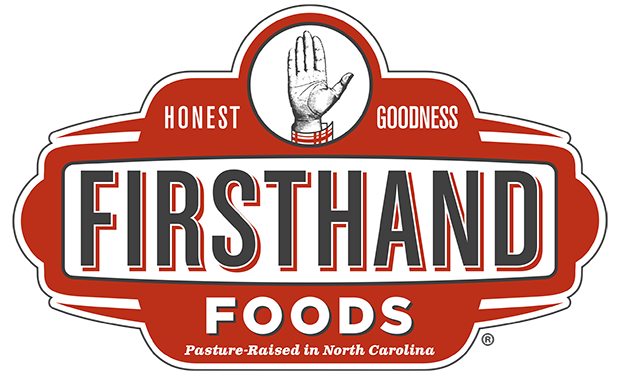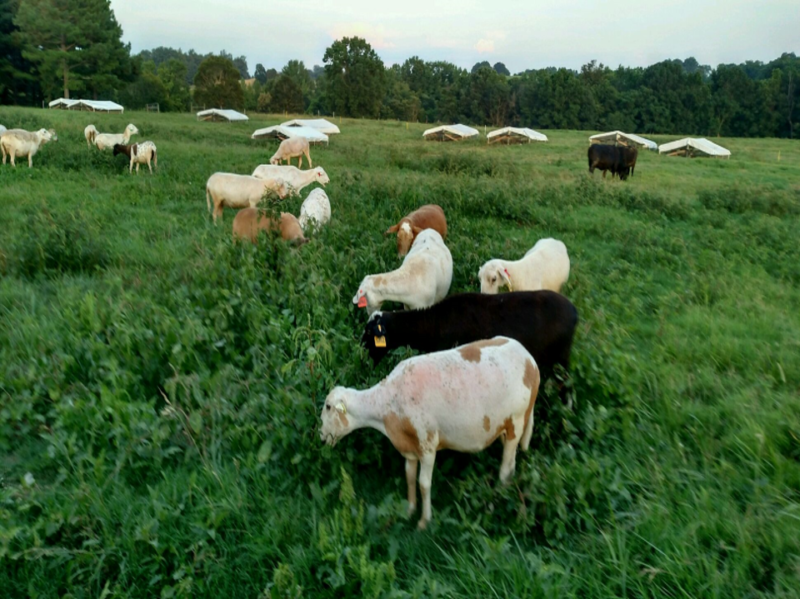We’ve been enjoying the increasing use of #regenerative to describe pasture-based farming systems. It resonates as a framework for approaching meat production in a way that replenishes rather than extracts…that works with nature rather than against it….that builds soil quality rather than depletes it.
Joe & Robin Hampton of Back Creek Farm in Mt. Ulla exemplify what is possible when a commitment is made to regenerate the land using animals. More than 30 years ago, they took over an old cotton farm with depleted soils that had less than one percent organic matter. They began their farming venture with Angus beef cattle, adding lamb to help renovate the pastures and eventually incorporating chickens for supplemental fertility. Over time, they built a diversified system where the animals live together outdoors and are rotated within and between pastures frequently to avoid over-grazing, control unwanted plants, build forage diversity, and leverage animal manure for fertility.
As a result, the Hamptons haven’t needed to apply nitrogen fertilizers in over 15 years and herbicide use is minimal if at all. Their soil organic matter has increased between 30 and 40 percent, which helps with water retention and infiltration, of major importance in their often drought-stricken region. Better quality and volume of forages allows them to support higher stocking densities, which means they make more money off the same acreage.
Well managed grass-based livestock production plays an important role in regenerating soils, protecting water quality, and building resilience into our food system. When you purchase Firsthand Foods meats you are supporting our farmers’ stewardship efforts. You’re doing your part to make a difference. Thank you for choosing resilience!
Thank you to the American Lamb Board for their generous support of our lamb marketing program.

